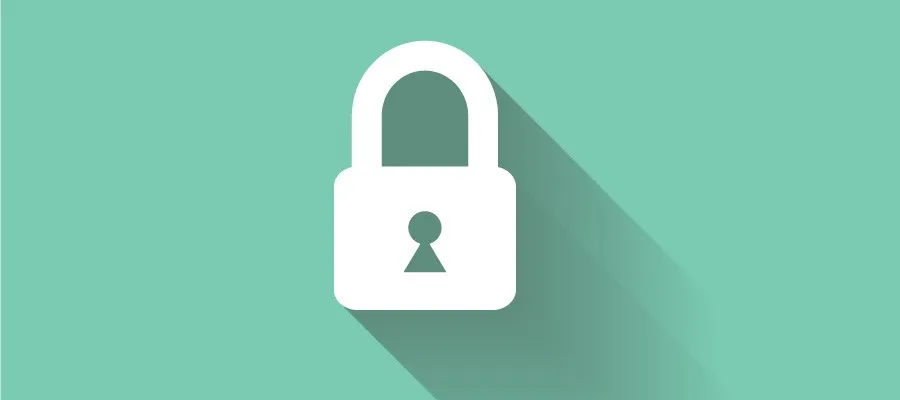
Creating a secure website is essential in today's online world. Cyber-attacks are becoming more and more common, and your website could be the next target. When building a website for your business, it is important to ensure that the site is secure and safe for your customers and their information.
Search engines Block Malicious Websites to avoid users clicking on malicious websites that could harm their devices or steal their information.
Luckily, you can do a few things to help protect your website. This blog post will explore the latest technology you need to create a secure website. Implementing these security measures can help keep your site safe from attack.
Artificial intelligence
Website security is a priority for many companies and organizations, but it can be difficult to stay up-to-date with technology advancing rapidly. The latest innovation in website security is AI-based identity verification. With this technology, users will have ultimate control of their data and an added layer of protection when giving out any information.
AI-based identity verification utilizes cutting-edge algorithms that perform real-time analysis and risk assessment on users' identities based on hundreds of factors, such as device fingerprints and geolocation status. This ensures the user is absolutely secure anytime they use their information online while maintaining easy access and convenience using automation.
Companies can trust this robust security solution to ensure optimized protection against fraud and secure access to their websites or services.
Install SSL certificates
Another important step in creating a secure website is to install an SSL certificate.
An SSL certificate encrypts all the data that passes between your website and your visitors, making it more difficult for hackers to steal information. This provides peace of mind for customers who may be wary about entering their personal details into an unsecured site. In recent years, Google has made SSL certificates one of its SEO ranking factors.
So by installing one on your site, you can boost its search engine ranking and provide more security and a better user experience for your visitors.
Add anti-bot protection
It is also essential to add anti-bot protection to keep unwanted automated traffic from overwhelming your web server or affecting the performance and speed of your site.
Anti-bot protection uses artificial intelligence to prevent bots from overwhelming your server while still allowing legitimate traffic to pass through without issue.
This technology can also help you block malicious bot attacks, which are becoming more common and can be costly for businesses in terms of lost data and damage to their reputation.
Use Anti Malware Software
Anti-malware software can help fortify your devices against malicious applications and spyware, keeping them safe from harm. Malware can lead to system malfunctions, slowdowns and sometimes even data theft, which can have disastrous consequences.
Investing in anti-malware software allows you to keep up to date on security patches and other tips to keep your device secure and running optimally.
Besides offering updated virus scans, anti-malware software may also provide protection by actively blocking suspicious websites or downloads. It's the perfect way to take back control of your online security so that you can browse and shop confidently, knowing that you're doing everything possible to protect yourself against cybercrime.
Create backups of your website
Having a site backup plan is one of the most important things a website owner should have. After all, with various online threats such as hackers, cyberattacks and malicious code always lurking around the corner, you should take every precaution to protect your website.
A well-thought-out backup plan involves configuring automated backups at regular intervals and then regularly testing them to ensure your website data is safe. Not only does this keep your content secure, but it also ensures that you can quickly recover your information in case of any emergency without too much hassle or loss of productivity.
When creating your own backup plan, be sure to consider the sourcing and hosting of backups, the best frequency for ensuring successful backups and how to retrieve the data saved from these backups.
Make your website passwords uncrackable
Creating good website passwords is essential for cyber security. Strong passwords are long, contain both numbers and letters as well as upper and lowercase letters, don't include personal information, and should be changed every six months.
Additionally, choose words that appear random but still have meaning to you; this will make them easier to memorize than random sequences of symbols.
To make sure your passwords remain uncrackable, avoid using the same password for multiple websites or platforms --- if one is compromised, the others won't be affected. Finally, websites often have extra layers of security, such as two-factor authentication; this provides an additional layer of protection for your cyber security.
Taking these precautions can help keep your online data safe from malicious individuals looking to access it.
Conclusion
Though there are many ways to protect your website, these six are some of the most important.
By ensuring that your site has an SSL certificate, is backed up, and has strong passwords, you can reduce the risk of being hacked significantly.
In addition, adding artificial intelligence and anti-malware software can further protect your site from malicious bots and attacks. By taking these steps, you can help keep your website safe from harm.
